Women and other marginalised groups are shaping the future of the electronic music industry, but there is still a lack of gender diversity in electronic music scene. The Keychange programme of Tallinn Music Week that promotes the work and visibility of women and gender-expansive makers in the music industry, will bring Efe Ce Ele aka Efe Cabrera López to Tallinn, Estonia in April 2024.
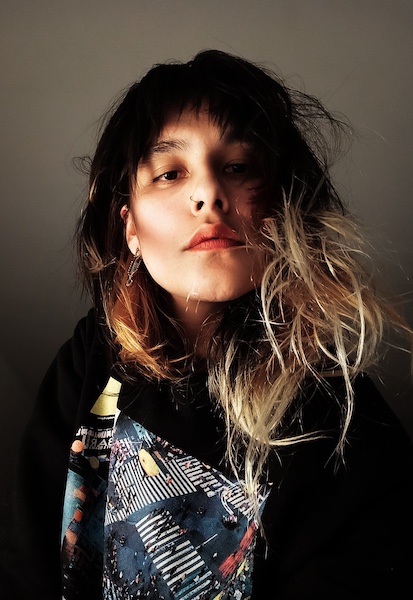
Efe Ce Ele is an electronic music artist and producer who works in different media (music, visuals, digital/analogue electronic installations) based on the plasticity of sound. Here, Efe reflects among other things, on why she is a vegetarian and transfeminist, and how did she get into music production.
Efe, how do you define yourself?
Well it depends on “where” but in general: I’m a transgender person in the non-binary spectrum, my pronouns are she/her and I aIso define myself as a transmedia artist working in between genres, disciplines, poetics, politics, and aesthetics.
What is veganism to you?
I’m a vegetarian but aligned with some vegan political views. For me veganism is a way of leaving, trying to be respectful with the other life beings. I’m not the kind of veg that believes that everything should be plant based because I’m mostly against unethical industrial procedures and culture (of animals or plants). Industrial farming, even if it is for vegetable resources, implies deforestation, killing of primary habitats, extinction of species, and a long list of terrible things created by anthropocentrism. I was born in Colombia, and I saw directly how massive culture destroyed moorlands, rainforests, jungles, rivers. And sadly that is an even more common landscape in the North of the world… That is not the veganism I’m interested in, but sadly I don’t know what could be the massive ethical system to be really respectful with other species, so I just try to be conscious of my consumption as much as I can. There are a lot of contradictions and paradoxes when we talk about ethical treatment of other species, so I just try to be more conscious of the origin of the things I eat/wear/use since I know that most of the things we use, even in terms of “human rights/needs” proceed from the suffering of others (human or not).
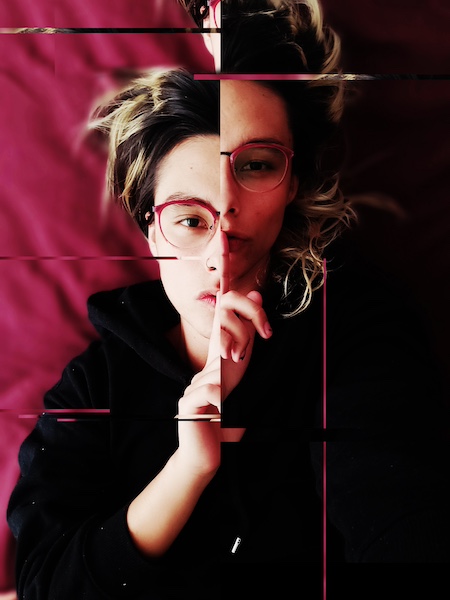
Efe Ce Ele aka Efe Cabrera López
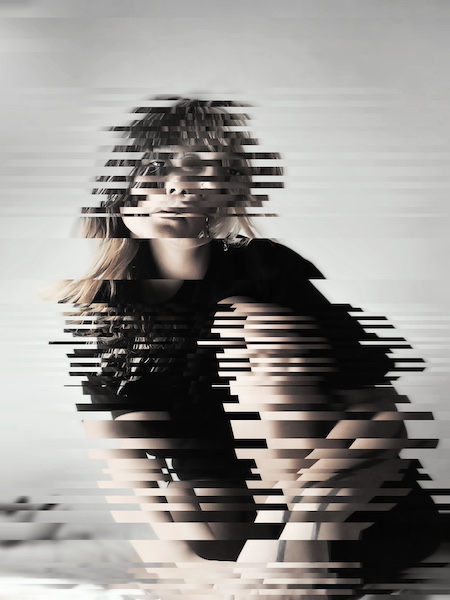
Efe Ce Ele aka Efe Cabrera López
What is feminism to you?
I think it is a bit hard to define feminism today as there are too many postures, interests and confrontations between people that auto-perceive themselves as feminists. But I’m into the transfeminism movement that considers feminism as an equity movement, intersectional, conscious of the different fights of the world and in solidarity with minorities, against all the violences. I like the feminism that is taking into account that it is not the same (there are various problems/violences) to be a white woman in the North of the world, or to be a black trans-woman in the poorest town of a country in the Caribbean; to be a woman, neurodivergent with physical disabilities, or to be a black famous and rich woman. So I understand that the basis of feminism is to fight patriarchy, but I trust the feminism that understands that patriarchy is not a system that just affects cis-woman and it is not a system isolated from savage-capitalism, colonialism, racism, phobia, ableism, etc. I considered myself feminist previously and in parallel to start my gender transition, since I knew that it was the movement that fights for defending women (cis or trans) and to abolish inequalities created by patriarchy. But after that I was disappointed when the terfs [trans-exclusionary radical feminists] and their transphobic speech got massive. And now I’m transfeminist since I know that not all the feminists are really concerned about equity but about power, constantly repeating the same violences that they were supposed to fight.
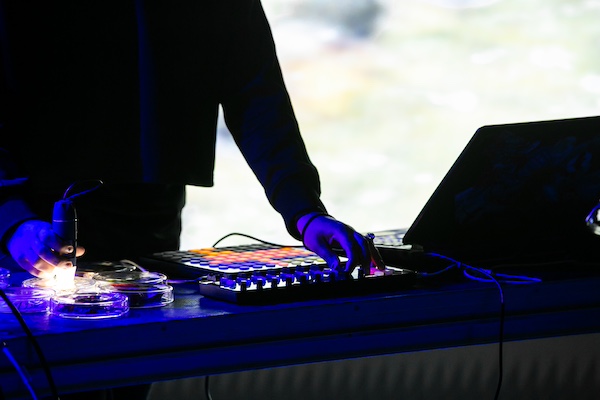
Efe Ce Ele aka Efe Cabrera López
Why is the scene out of step for women, trans and non-binary electronic music artists?
It is too complex to say with one sentence, but super brutely I can say that, of course, the problem is patriarchy and heteronormativity. Both the systems ruled the world for thousand years and the resources are still in the hands of those people, also the mindset still remains today. We can talk about education, we can talk about public policies, we can talk even about religion. But one of the real and big problems is that the economics of the music industry are still in the hands of the people raised by centuries of male-hetero-cis-white hegemony. And same as capitalism, extractivism or colonialism, when the thing is about resources, the humans in power show their selfishness, their need to monopolise all the resources and their fantasy that they are better or do it better. There are a lot of promoters that only want to hear the “herudit” men and see the “hot” girls playing, because finally they have the money and they love that fantasy of the boss and the bitch. It is sad that this governs the world. Even women and racialised people now in power are constantly repeating the violences that patriarchy and heteronormativity created. There are a lot of people trying to really change it, but there are too few people that really have the resources and genuine interest in changing it, in changing the way to spread the economics of that industry and changing the idea of the people who can potentially benefit from it. We need more safe spaces.
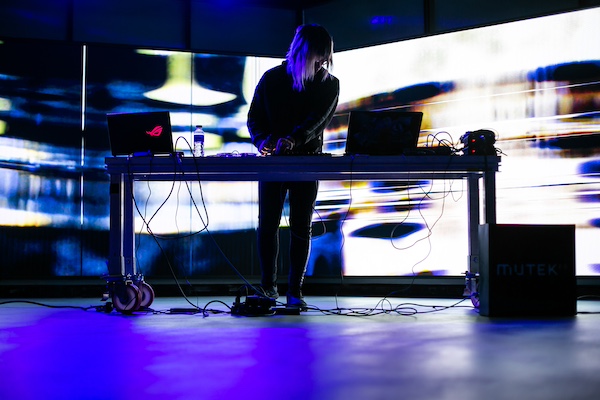
Efe Ce Ele aka Efe Cabrera López

Efe Ce Ele aka Efe Cabrera López
How did you get into music production?
I make music since I was a child, I started to play piano, guitar and drums by hearing and copying my parents by memory. In my family there aren’t professional musicians, but there are a lot of musicians and music lovers. Also the city (Pasto, Colombia) I was born has a very long tradition of popular music: Andean folk and Afro-Pacific rhythms. So it was a kind of “natural” thing for me to be surrounded by lots of different sounds.
My first introduction to ambient and deep listening wasn’t from electronic music, it was in a natural park island in the middle of a lake called La Cocha. In the path of the park there was a sign that said: ”In the forest, the silence is a million sounds”. That sign totally changed my idea of listening, sound and music.
My interest for electronic music was born when I was studying sound and image design. There was a professor, Jorge Haro, who invited us to assist at one of his concerts. It was the first time I experienced an AV Live Concert made fully with noise electronic resources. Of course I had heard electronic music before that, but that was the first time I really got interested in it. In that concert I was compelled by the sounds, the textures, the possibility of creating unheard voices, instruments from another world, a really weird world. After the concert I asked him to teach me sound synthesis and then it started a path of no-return in electronic arts and electronic music.
I’m a producer, both in the studio and for my Live Acts. I really love music curation, but I mostly explore that with Fragment A, the label we have with my friend PIKNTE.
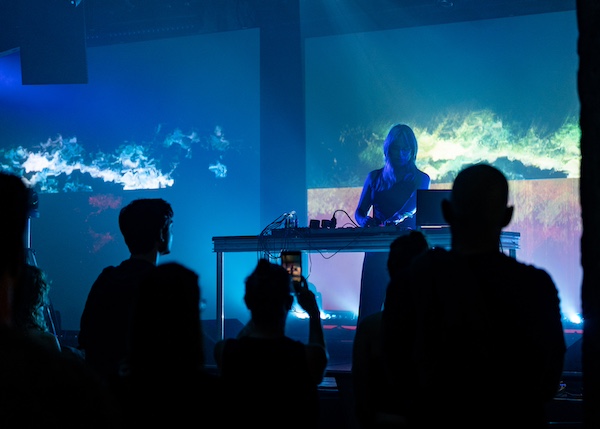
Efe Ce Ele aka Efe Cabrera López
What electronic music artists etc would you say have influenced you the most, and why?
The list is long, but doing the effort of choosing three of them, I would say Dasha Rush, Wendy Carlos and Kangding Ray. But it is important to mention that those three are just electronic musicians and I think that all the music I heard along my whole life influenced my way to create and understand music. For me it is impossible to forget salsa, for example, or marimba, Andean music, as it is impossible to describe my music without industrial, gothic wave, metal or punk. That is why my music is eclectic. I don’t like to define or condition myself to a genre or style, I love cinematic textures. I love to think of my music as soundtracks, even if it is ambient or rhythm based, for hearing/listening or dance. So you can find in my discography a lot of experiments, some peaceful sounds, other hard and heavy beats, but more or less all my music pieces is ideas for soundtracks of non-existent movies.
What aspects interest you in electronic music, and music in general?
What I mostly like about electronic music is the texture of sounds, the idea of manipulating the sound as sculpting in time. What I also like is that electronic music production is infinite, there is no music that I know that cannot be done with the current resources we can find in electronic music production.
And about music in general, I love the way I feel connected to the ineffable, it’s healing to let yourself into the sea of sounds, the unbearable immateriality of sounds. Especially in instrumental music, it makes me feel in connection with existence, like in a spiritual journey but without voluntarily looking for it.
What female, trans and/or non-binary electronic music artists would you recommend to someone who has never listened to electronic music?
It depends on what kind of electronic music this person wants to explore. For example, if it is ambient, I would recommend France Jobin, if it is pop rhythm experiments, then Sophie, and for very versatile musicians Kavari and again Dasha Rush.
Are there any electronic music artists who you think people should be on the lookout for at the moment?
Well apart from the mentioned above, I want to share some incredible artists from Latin America doing great experiments in electronic music: Aylu, Ana Maria Romano, Ross, Piknte, Viejalok, Leslie Garcia are some of them.
How do you get past creative blocks?
Letting myself return on my own, listening to music, walking, but mostly without pressure. I don’t like to feel that I always have to be creative. For me, getting inspiration has never been an issue, but when I didn’t feel inspired, I learnt that probably it happens because I’m trying to deal with something else, so maybe it is time to just put the focus on other things and then return.
How do you switch off?
Switching off is a bit hard, but I think that after having some difficult times because of unhealthy habits I just started to value other things. Now I try to give the time and attention to resting, to my partner, to my cat family, to eating and taking a cup of coffee. In music, and especially electronic music, there is a lot of anxiety. Probably that makes super successful artists, but now I really appreciate my own rhythm more than feeling that I always have to do something or be somewhere. I guess I switch off just remembering that my health is important and my ideal life is not always trying to “achieve” things.
What are your expectations regarding Tallinn Music Week?
Well, I’m not sure if those are expectations, but I hope that people like my show to keep building my audience. Also, it would be great to make some contacts and friends to keep moving my music with labels, agencies and festivals. On the other hand I just want to say that I’m happy because it is my first time playing in a country by the Baltic sea in Europe — it will be a great experience.
Get inspired!
Website: https://efeceele.com